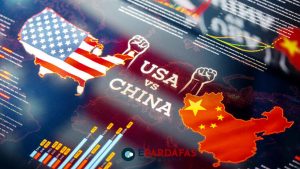Taiwanese authorities have revoked the residency status of three Chinese women after determining that they used their status to promote pro-Beijing propaganda, including calls for Taiwan’s forced annexation by the Chinese Communist Party (CCP).
The women, known online as “Yaya,” “Xiaowei,” and “Enqi,” had obtained residency in Taiwan through marriage to Taiwanese citizens. They actively shared pro-CCP content on Douyin, China’s version of TikTok, advocating for Taiwan’s “armed unification” with mainland China.
One of the individuals, Liu Zhenya, also known as “Yaya,” left Taiwan for Fuzhou on March 24, just before the expiration of a 10-day self-deportation deadline imposed by Taiwan’s National Immigration Agency (NIA). Her appeal against the residency revocation was rejected. The agency justified its decision by stating that her advocacy for armed unification threatened Taiwan’s national sovereignty and security.
Similar notices were issued on March 21 regarding “Xiaowei” and “Enqi,” whose real names remain undisclosed. Both staged a protest outside Taiwan’s Presidential Office before their self-deportation deadline of March 31. The three women are now barred from reapplying for Taiwan’s family-based residency for five years.
The CCP considers Taiwan a part of its territory and has long sought to influence its politics, military, and public discourse through its “united front” strategy, targeting officials, business leaders, and influencers.
Taiwanese President Lai Ching-te has reiterated the government’s commitment to countering Beijing’s efforts to subvert Taiwan from within. He emphasized that the CCP continues to employ intimidation tactics and influence campaigns to weaken Taiwan’s democratic values.
According to legal experts, advocating for peaceful unification or independence falls under Taiwan’s freedom of speech protections. However, promoting military aggression threatens the fundamental rights of Taiwanese citizens and is not tolerated. Taiwan’s national security laws allow for the deportation of foreign nationals deemed a threat to social stability.
The revoked residency cases have sparked heated debate across the Taiwan Strait. While some in China view the women as patriotic, others argue that their actions highlight Taiwan’s democratic freedoms—something they would not have experienced under CCP rule.














Comments